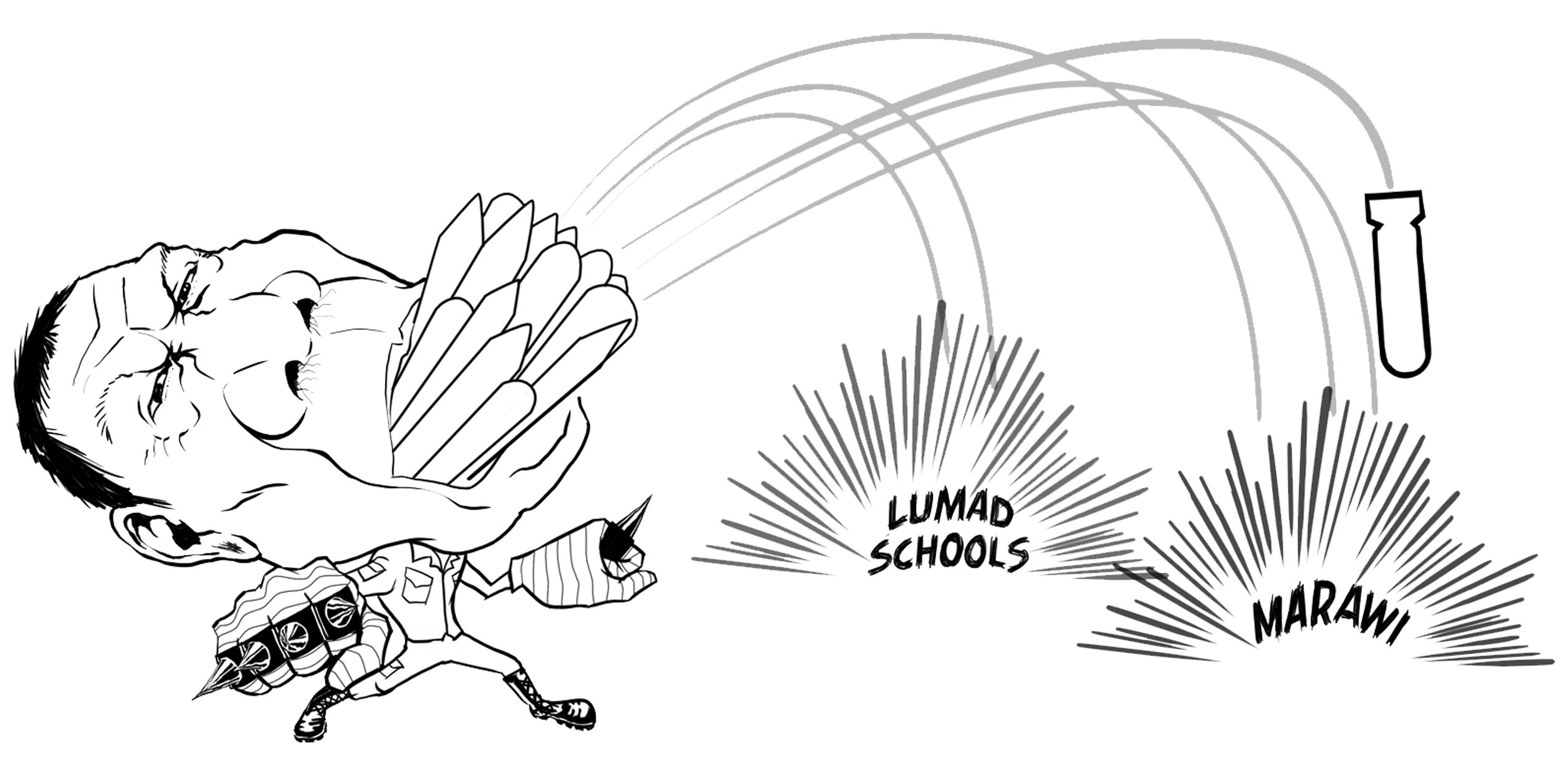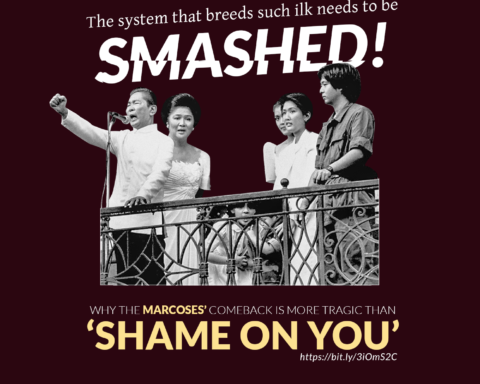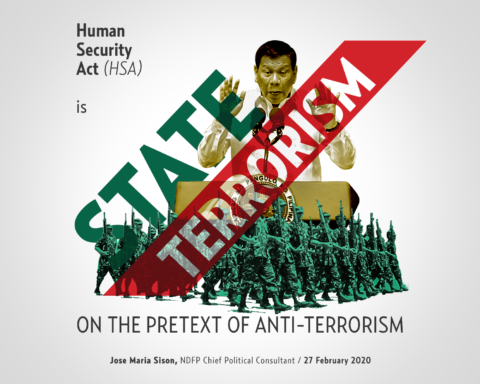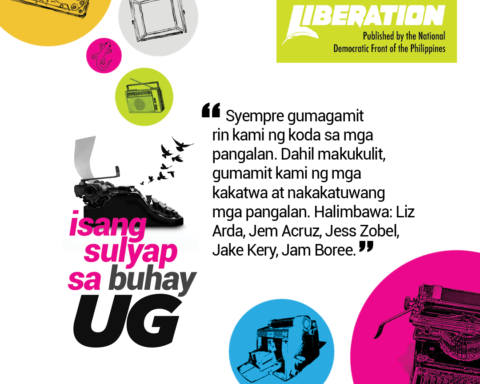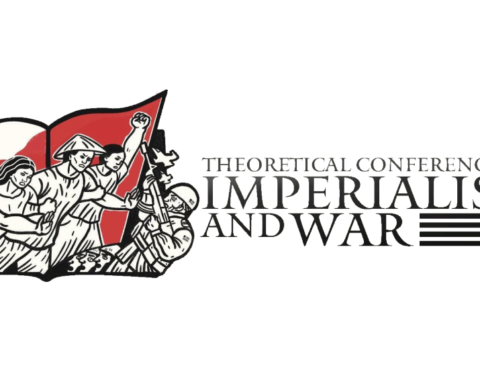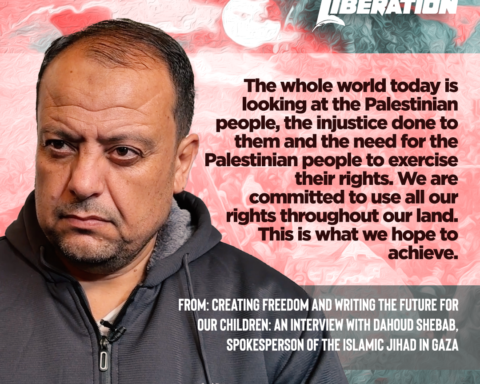by Vida Gracias
Given the copious bloodshed and massive destruction, the Marawi siege has more than amply shown that President Rodrigo Dutere has no compunction about running this country with an iron-fist.
No sooner had the Daulah Islamiyah (formed by the Maute group, Abu Sayyaf, Khalifa Philippines) staged its violent attack in Marawi on May 23 than President Duterte declared martial law and suspended the writ of habeas corpus not just in Marawi but in the entire island of Mindanao. Sixty days were deemed not enough to contain the “invasion or rebellion”. With the concurrence of Congress in joint session, he extended martial law for another 150 days to last until the end of this year. There’s a lurking fear that martial law would be extended nationwide.
But hark, the martial law declaration has also targetted “other armed groups” in Mindanao apart from the Maute and Abu Sayyaf groups. “Dismantling” of the New People’s Army has specifically been added. The military first denied this, but later events proved that the NPA is indeed its main target not just in Mindanao but in the other parts of the country.
Cries to lift martial law because of baseless claims — “Acts of terrorism are not necessarily equivalent to actual rebellion,” averred Congressman Edcel Lagman in his petition to the Supreme Court; “[Martial law] is unwarranted, unjustified and wholly out of proportion to the threat posed by the Maute and Abu Sayyaf groups,” stated the Makabayan solons in another petition—fell on deaf ears.
Neither have the heart-rending appeals by over four hundred thousand evacuees—Stop the daily airstrikes (which have cost hundreds of lives and vast properties leveled to the ground)! Allow us to return home! — could move the military to accede to their demand.
President Duterte has repeatedly said that he would rely on the military in deciding to lift or extend martial law. Defense Secretary Delfin Lorenzana, once a Scout Ranger battalion commander and counterinsurgency expert, admitted recommending to the President the martial law declaration and its extension. However, Duterte was quick to add: “I and I alone am responsible.”
Enter the US
Duterte’s dread of “terrorism” engulfing Mindanao made him completely dependent on the military and, consequently, on the United States. Increasingly his anti-US stance has seemed to melt down whenever he finds common ground on the “war on terror” with the American imperialists—much to the latter’s delight.
On many occasions, he dropped his blusters and acidic rhetoric against the US. He found himself saying “thank you” for the US advisers’ support in the aerial bombings and intelligence guidance for ground troop assaults against Daulah Islamiyah. Not raising hell, he acknowledged that the military proceeded to invite the Americans without his knowledge. He was also grateful that the US had lifted its ban to sell weapons and munitions to the AFP-PNP, and donated two surveillance planes to boost the government’s counter-terrorism efforts. He was silent when the US Embassy boasted that since 2004 it has delivered and programmed more than P7.4 billion worth of military equipment to enhance the AFP’s capabilities.
As matters stand, the war on terror is turning the President not only into an imperialist lackey but also into a fascist. His complete reliance on the military makes him putty in the hands of the US. Where the military gains control the US is not far behind.
Far from being nationalist or patriotic, the Philippine military has for long been incorrigibly pro-American. Duterte himseld has publicly affirmed this. AFP courses and training are patterned after those of the US military, particularly its counterinsurgency programs. Top guns of the AFP/PNP get elite tutelage from US military schools. American advisers oversee combat and non-combat training of Philippine troops. The notorious Central Intelligence Agency or CIA also directly recruits agents from among Philippine military and civilian forces.
US and terrorism
The US has prided itself for leading the coalition of nations in the fight against terrorism, specially against militant Islam since 9/11. But rather than put terrorism to rout, its war has fanned the flames of radical Islam into many corners of the globe. By enlarging the war, the US has made billions of profit in war materiel, oil concessions, and infrastructure contracts in such war ravaged countries as Afghanistan, Iraq, and Libya.
The US has a history of backing terrorist groups, including those in the Philippines’. The website Global Research points to Al Qaeda and ISIS as “made-in-the-USA, an instrument of terror designed to divide and conquer the oil-rich Middle East and to counter Iran’s growing influence in the region.” Likewise the CIA gave birth to Osama Bin Laden as mujahedin in Afghanistan and allowed his organization to grow during the 1980’s, extending even to far-away shores as in the Philippines.
In his book The War on Truth: 9/11, Disinformation and the Anatomy of Terrorism, Nafeez Mosaddeq Ahmed wrote lengthily about the US-sponsored AFP-Abu Sayyaf-Al Qaeda nexus. As early as 2000, even then Senator Aquilino Pimentel Jr. disclosed, in a speech in the Senate, the joint US-Philippine government role in the emergence and activities of Abu Sayyaf. Yet no investigation was made. He said: “My information is that the Abu Sayyaf partisans were given military intelligence services, IDs, safe-houses, safe-conduct passes, firearms, cell phones and various sorts of financial support.” He also said that Philippine military officers involved held very high posts.
As mayor of Davao City, Duterte himself had claimed that the killing of suspected-terrorist Marwan was a CIA operation that led to the killing of 44 Special Action Forces, including MILF fighters too, in Mamasapano.
No fact has yet been established but the botched operation to bag Isnilon Hapilon, a senior leader of the Abu Sayyaf, that led to the Marawi siege and the declaration of martial law could be a secret plan hatched by the Americans. Hapilon, like Marwan, has a $5 million bounty offered by the US government.
A purely military solution to the Marawi crisis, and to the country’s Left and Moro insurgencies, certainly gives the US the upperhand in deciding the course of the Duterte presidency. The “war on terror” has become a convenient excuse for the US to intervene in the internal affairs of countries and, in this case, gain further military and economic foothold in the Philippines.
